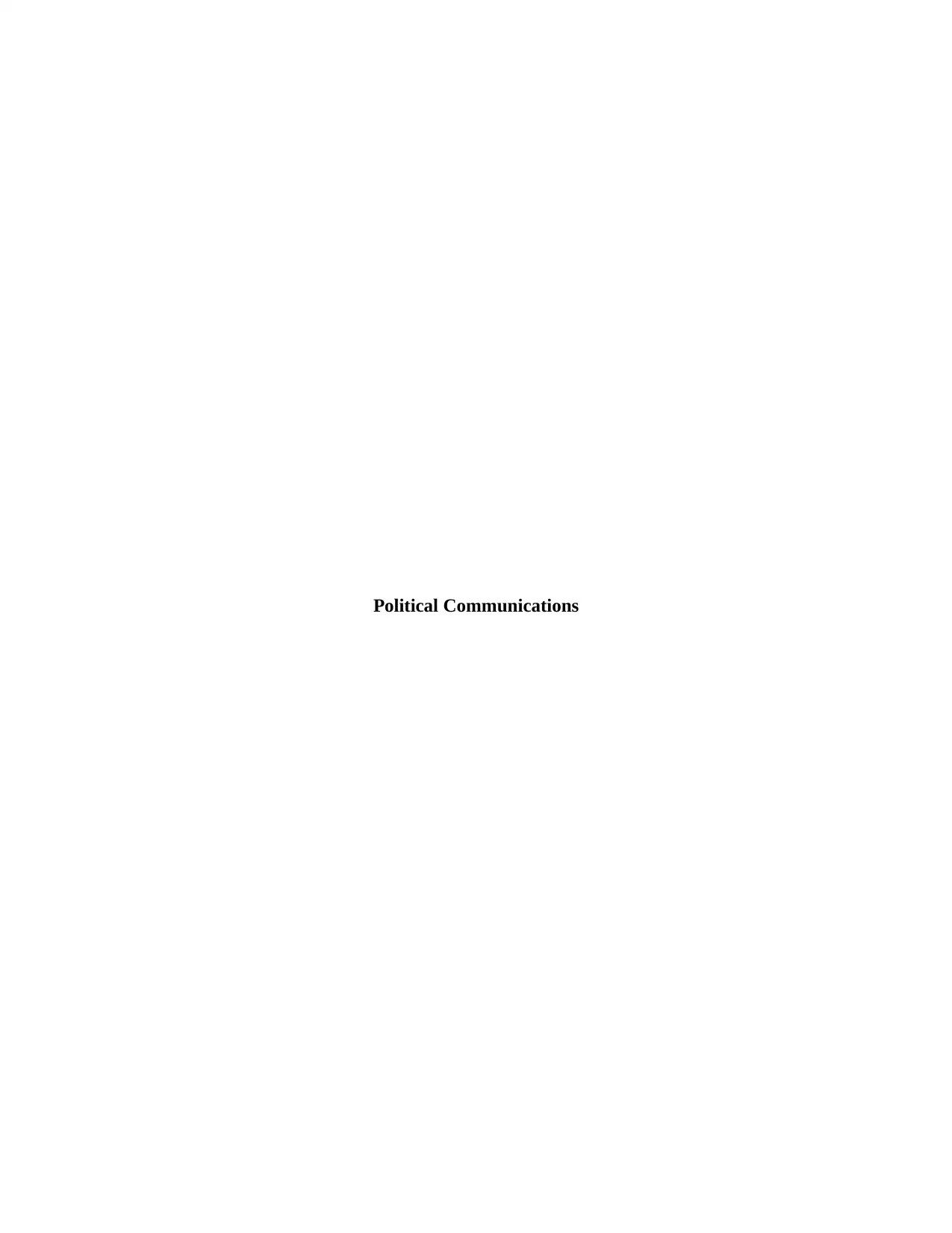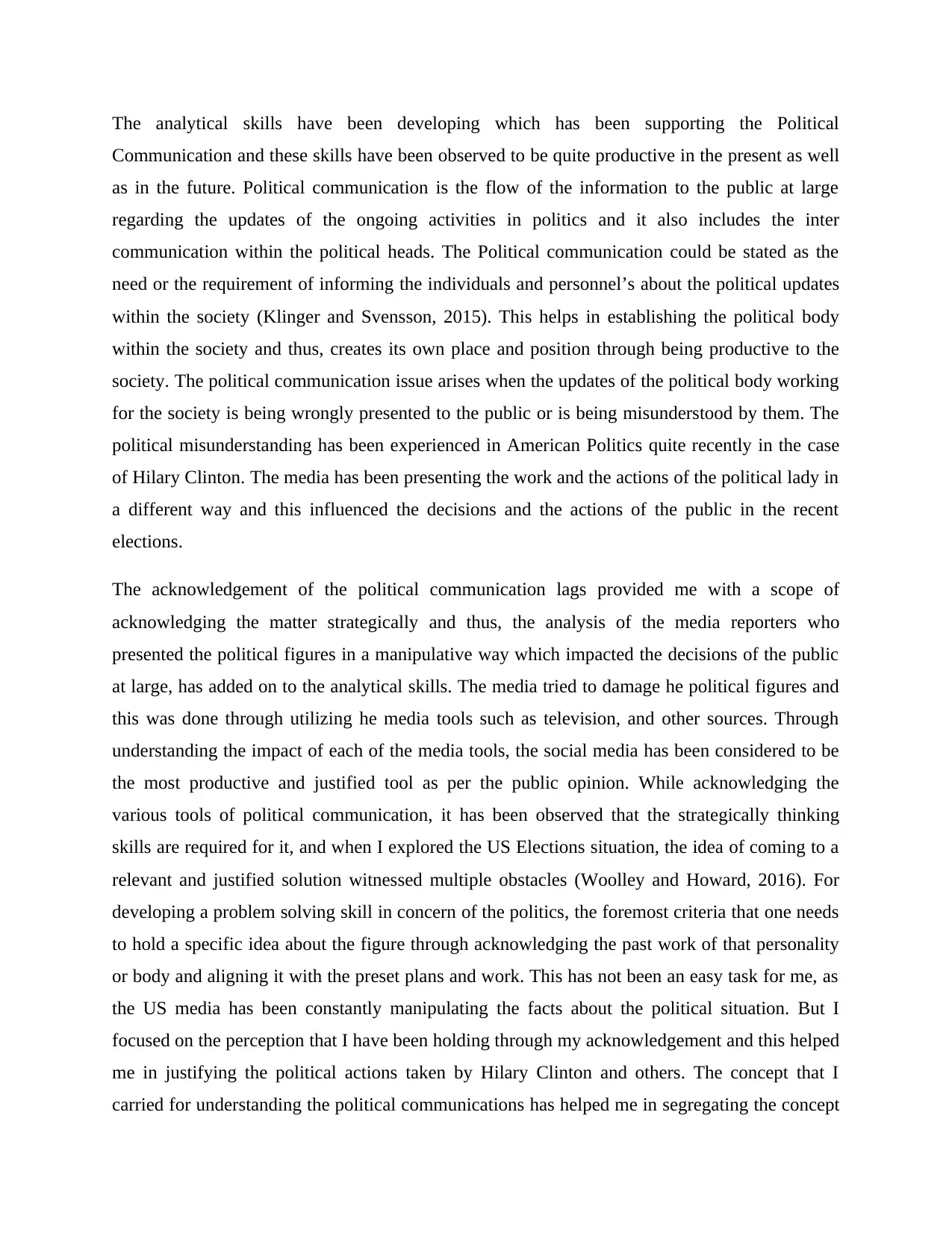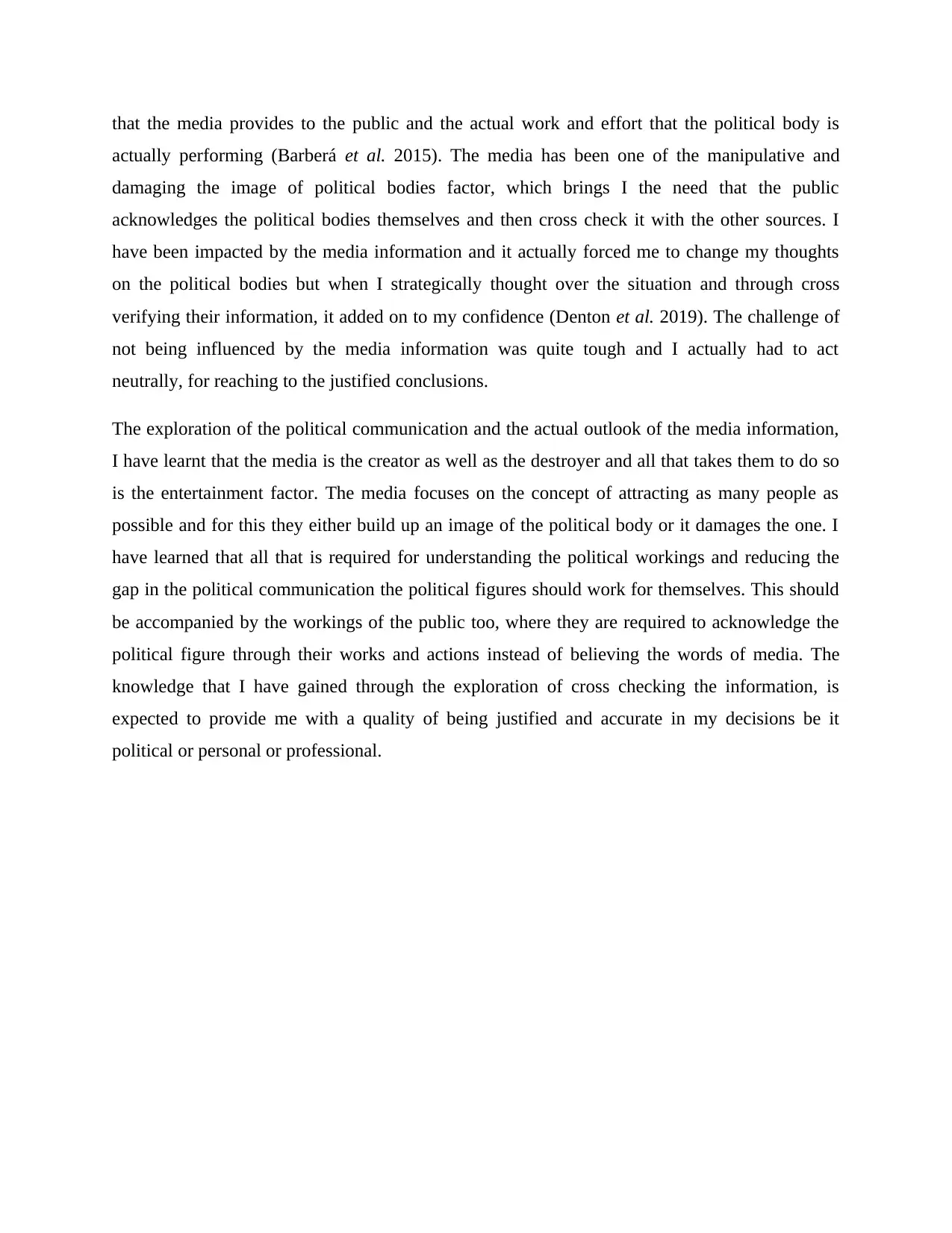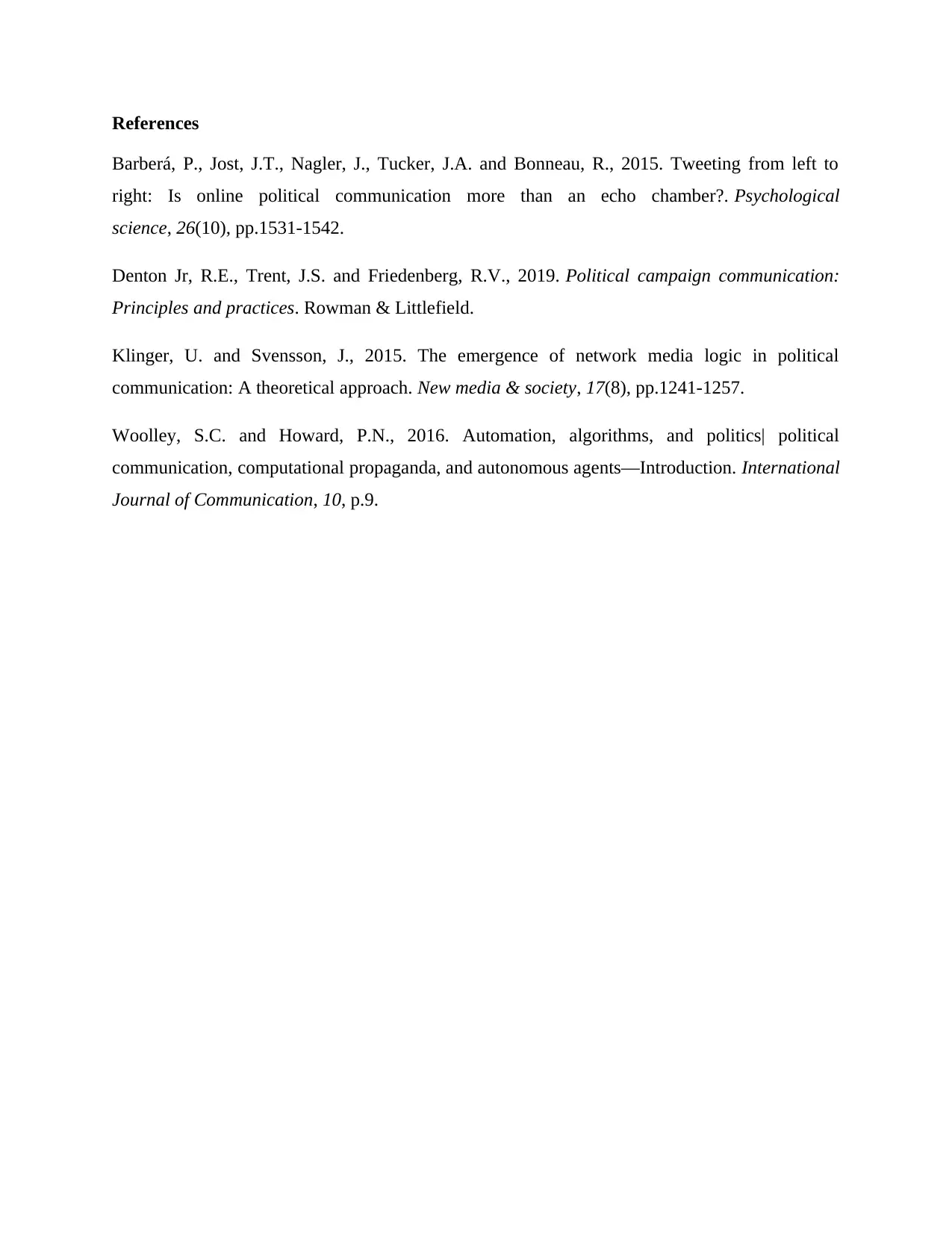Political Communication Analysis: Media Influence & Public Perception
VerifiedAdded on 2022/10/19
|4
|964
|289
Essay
AI Summary
This essay delves into the realm of political communication, critically examining the impact of media on public perception and political outcomes. The analysis focuses on the flow of information, both within political circles and to the general public, and explores how media outlets shape narratives, often through manipulative tactics. The essay uses the example of Hilary Clinton's portrayal in the media to illustrate how biased reporting can influence public decisions. It highlights the importance of developing analytical skills to discern factual information from media manipulation, emphasizing the need for critical thinking and cross-verification of information. The author reflects on their own journey of navigating media influence, ultimately advocating for a more informed public that assesses political figures based on their actions rather than media portrayals. The essay underscores the media's power to both construct and destroy political images, stressing the importance of independent evaluation in political communication.
1 out of 4











![[object Object]](/_next/static/media/star-bottom.7253800d.svg)